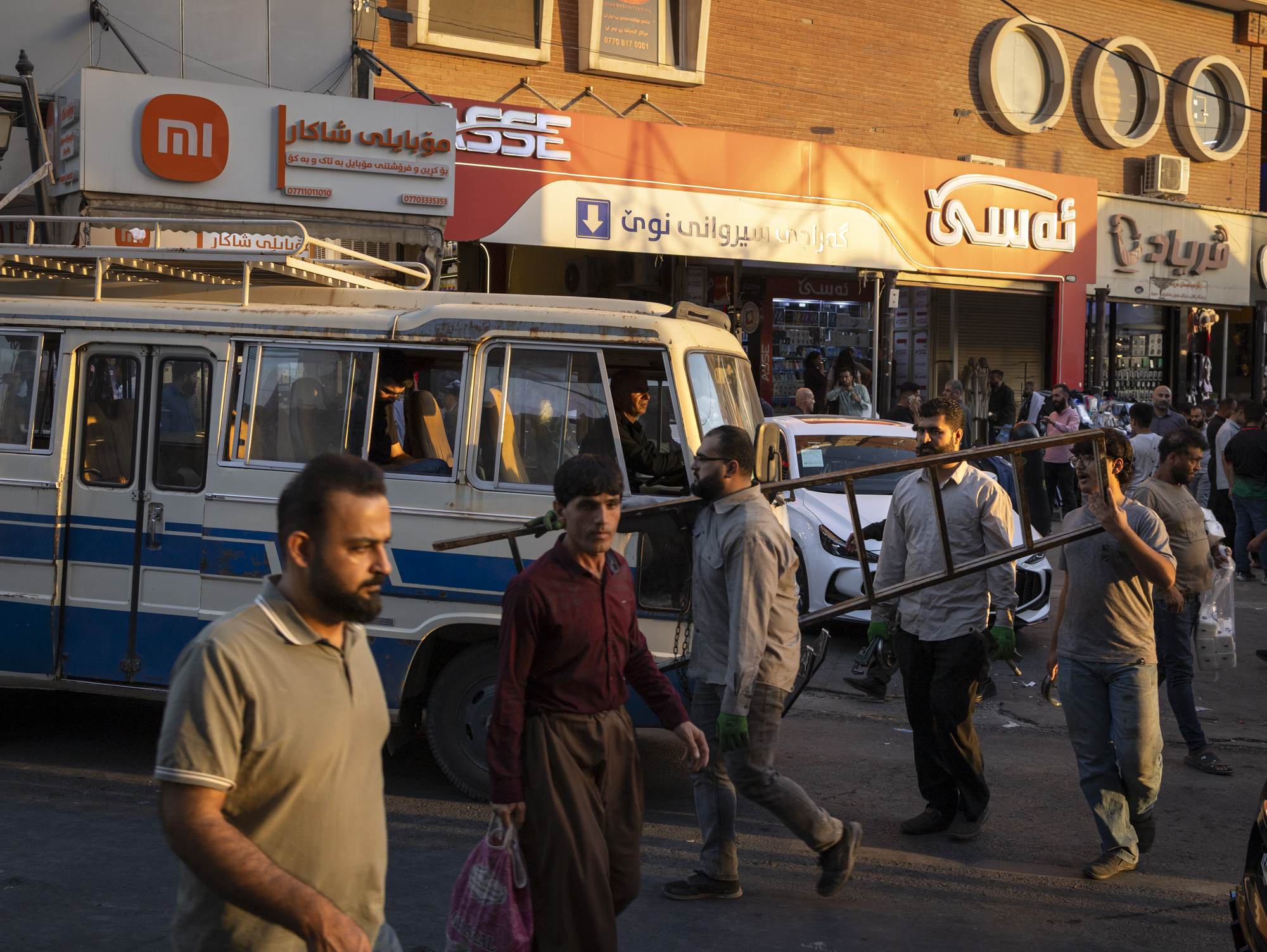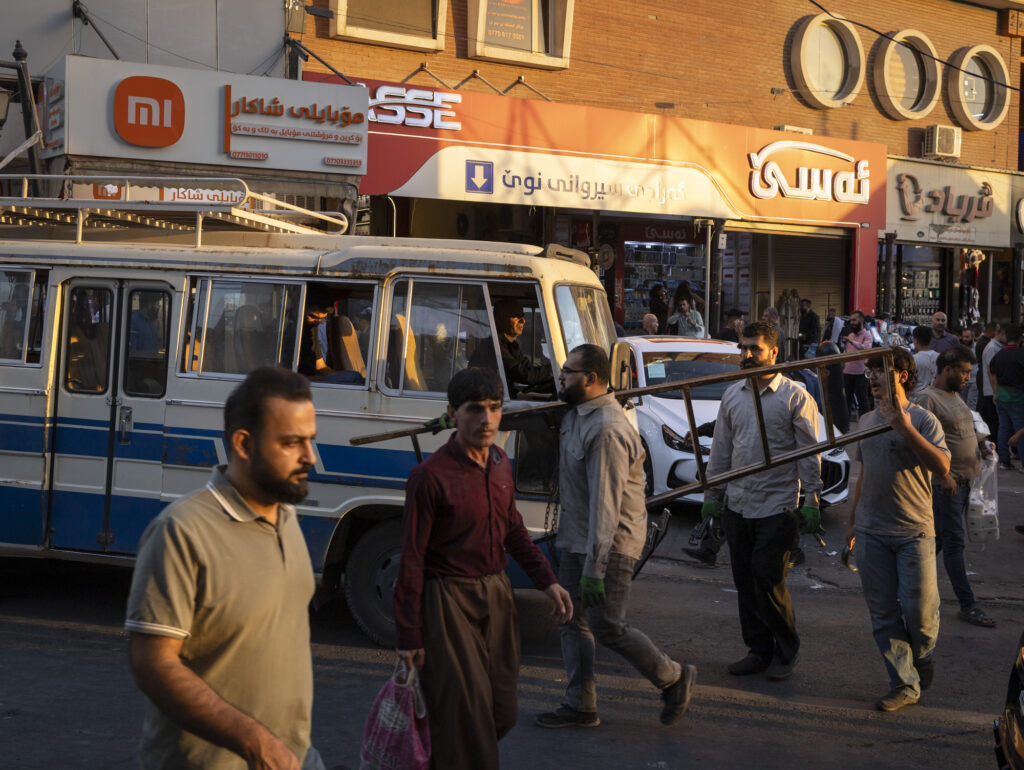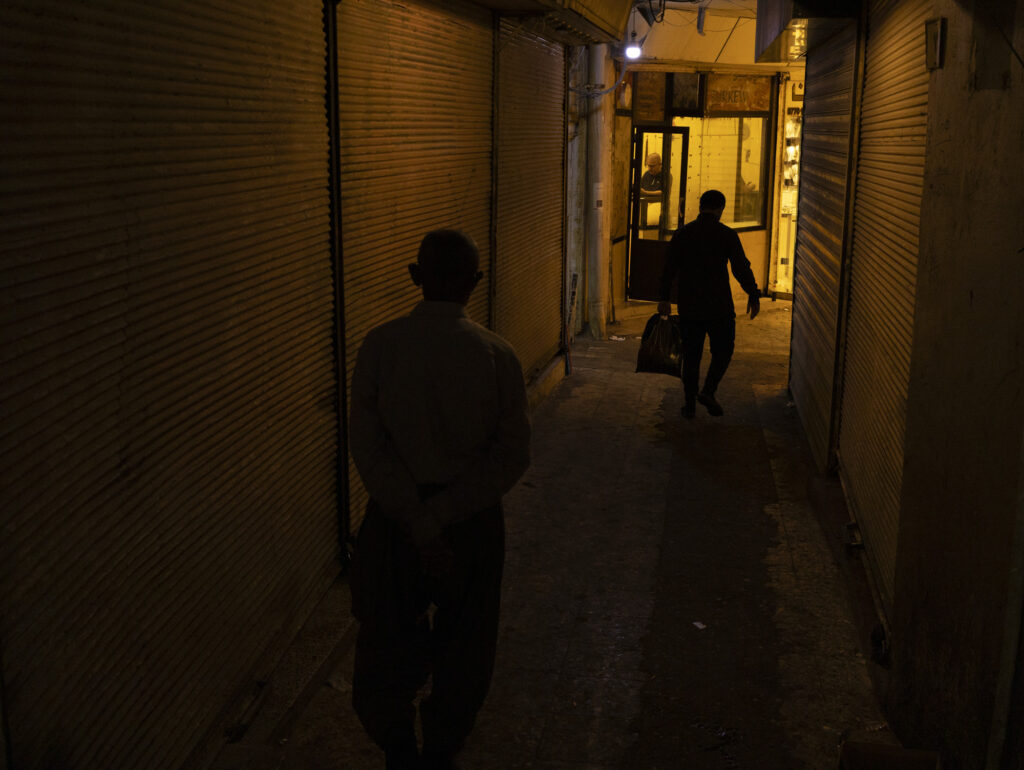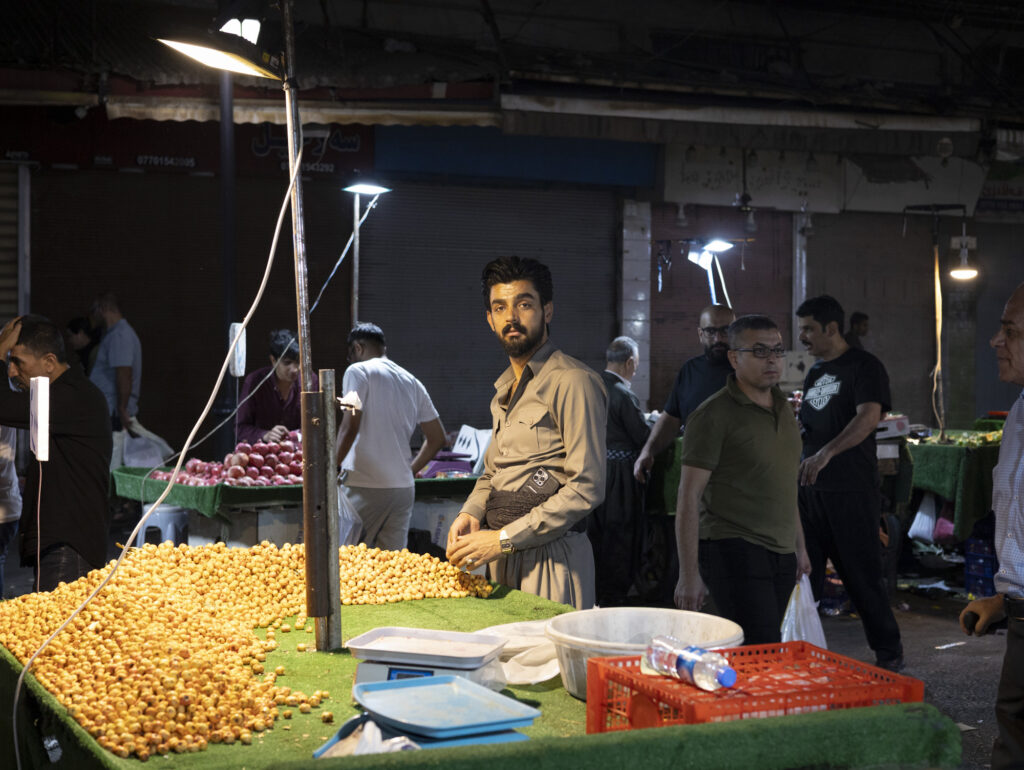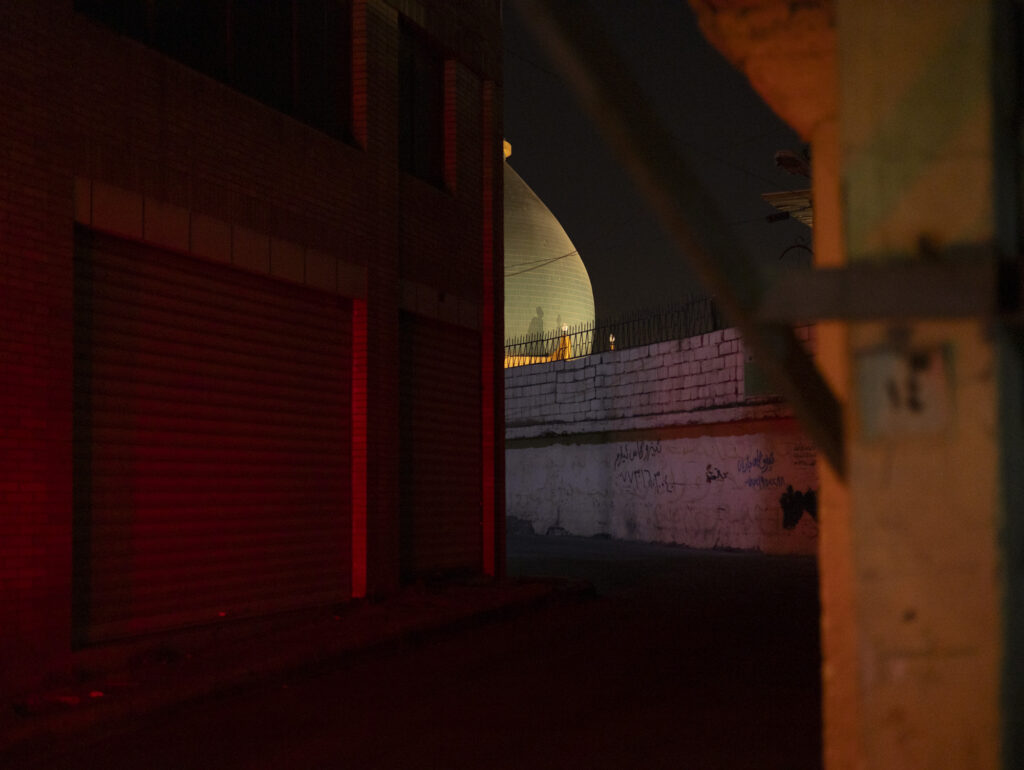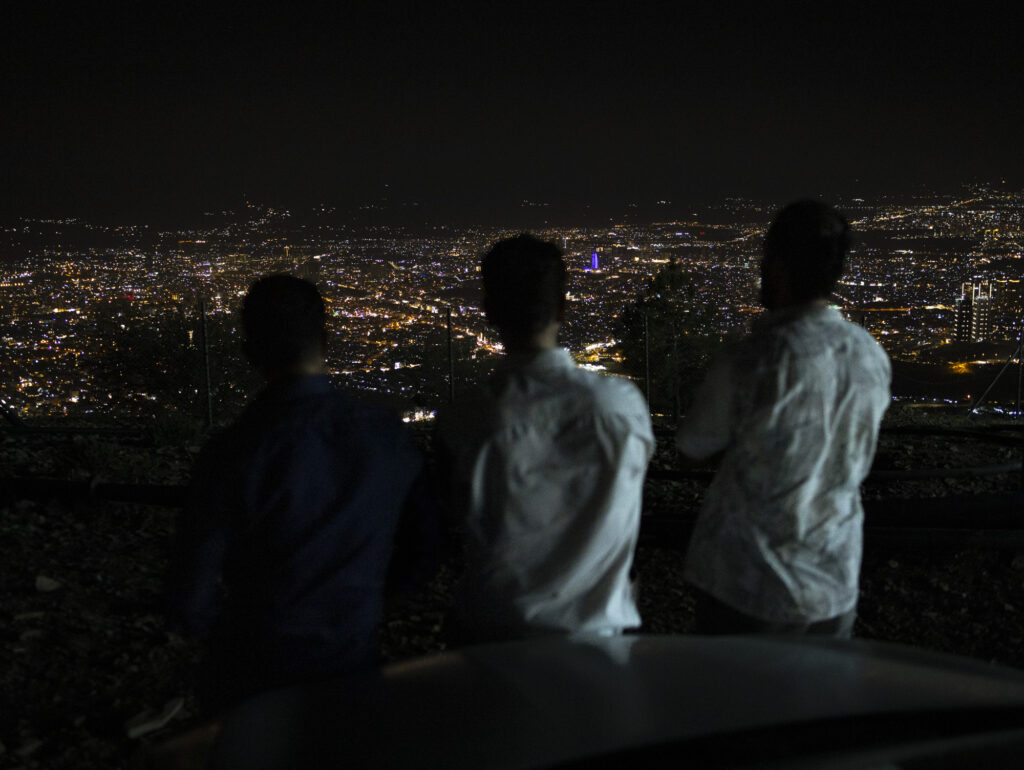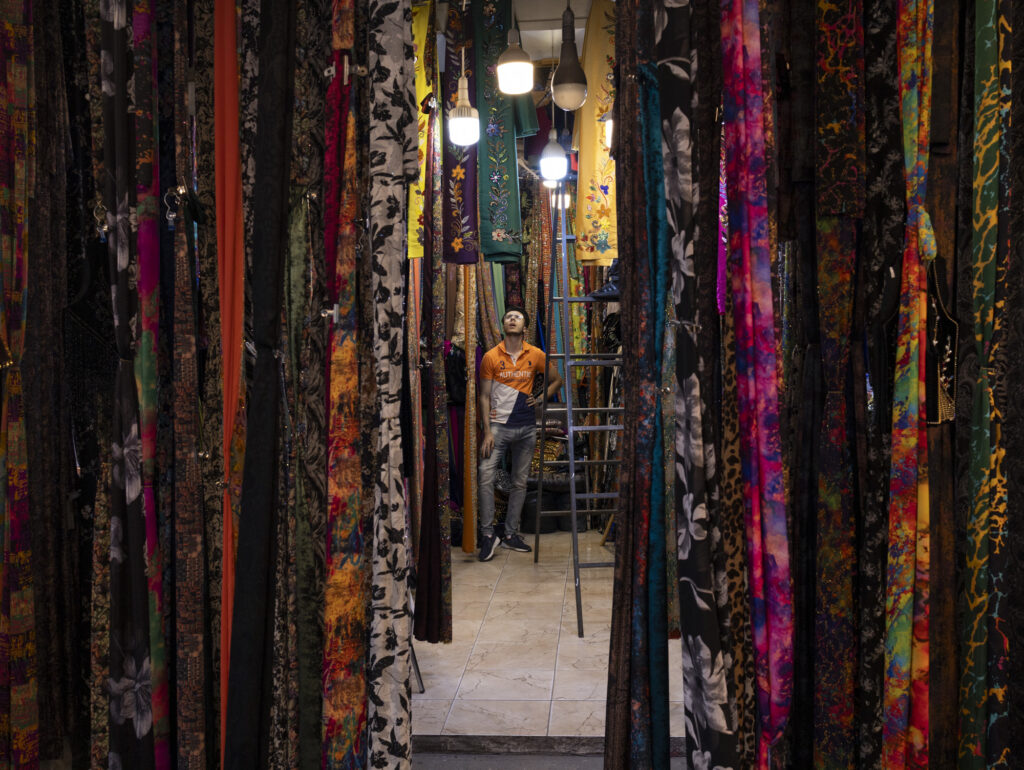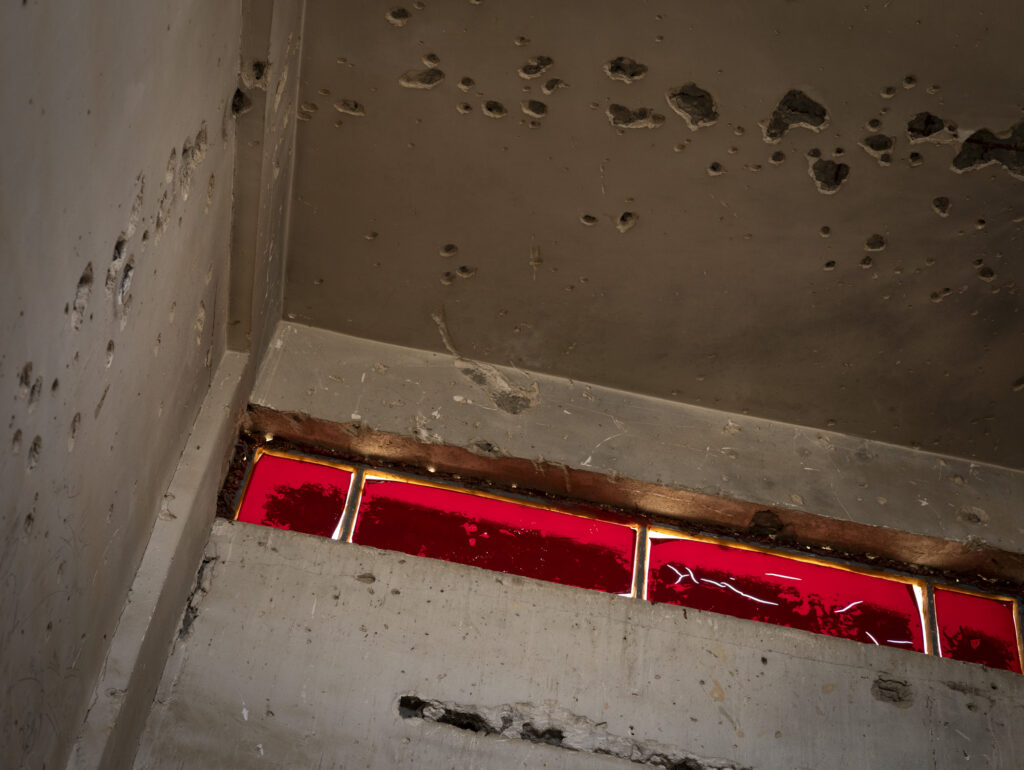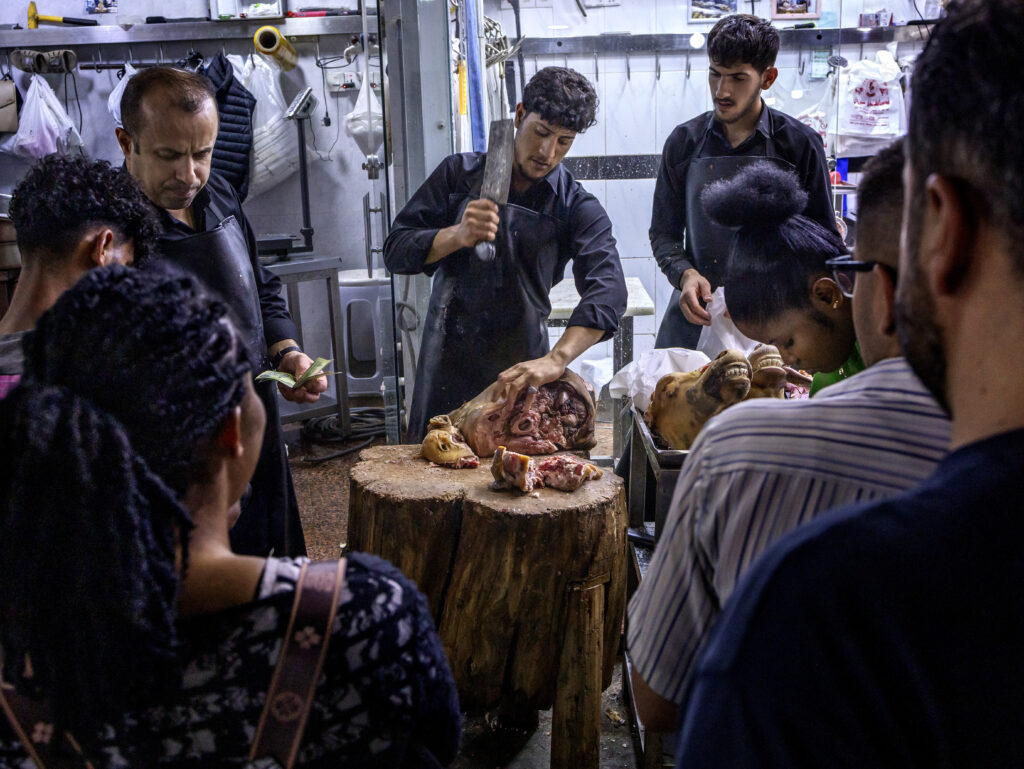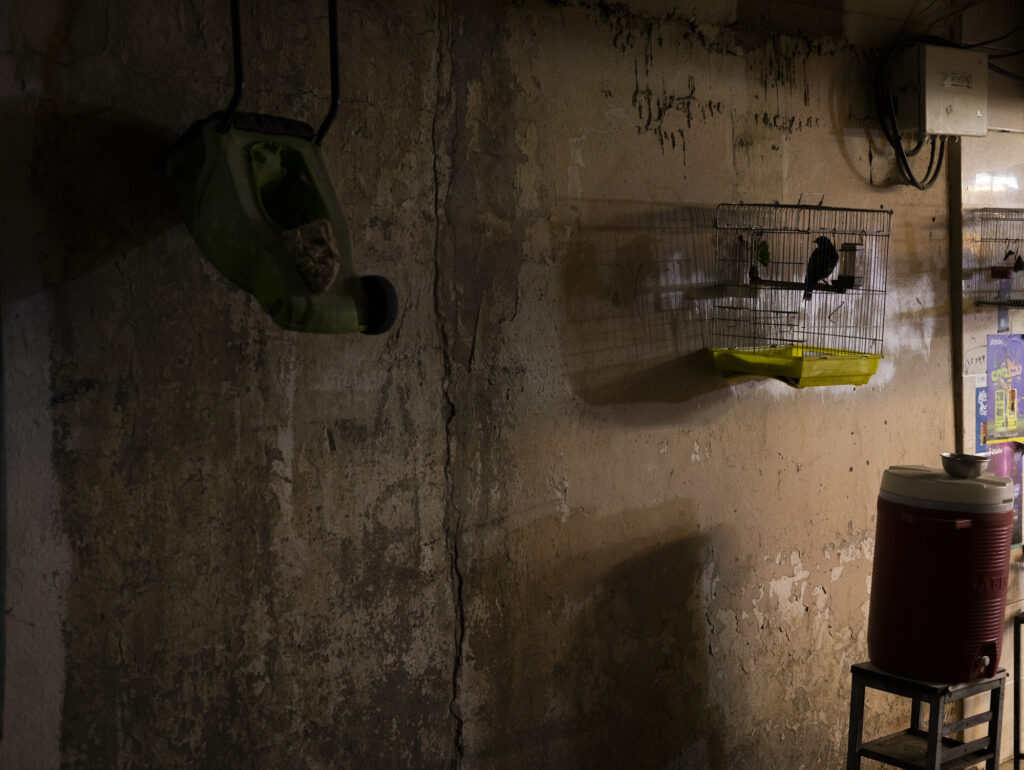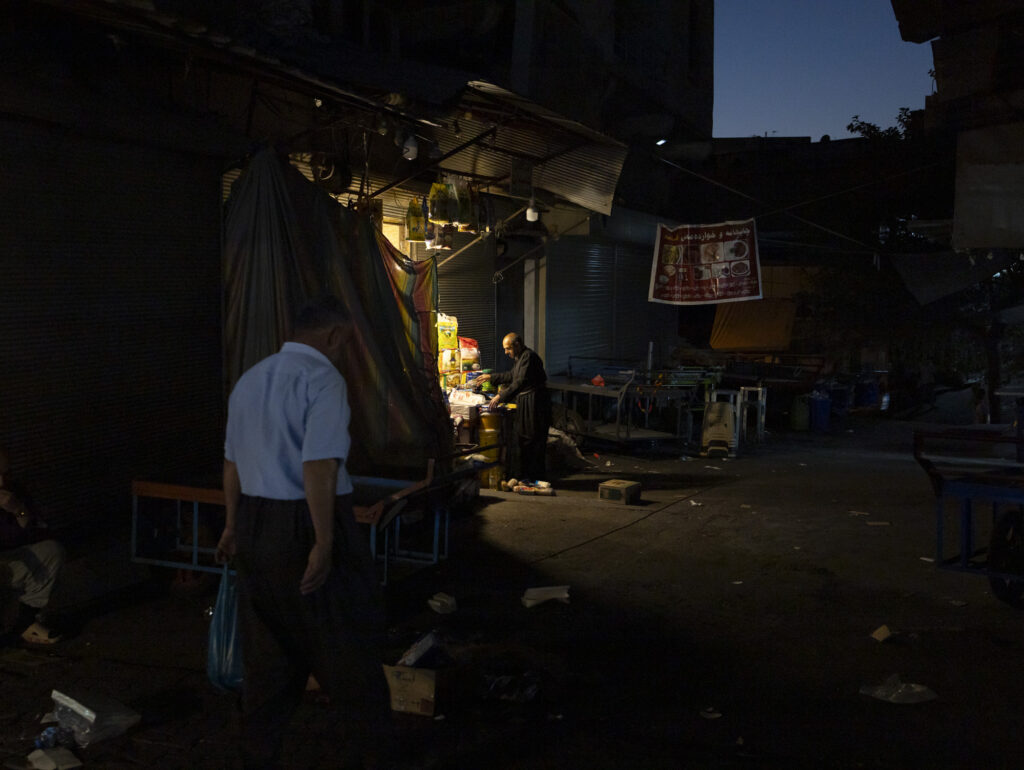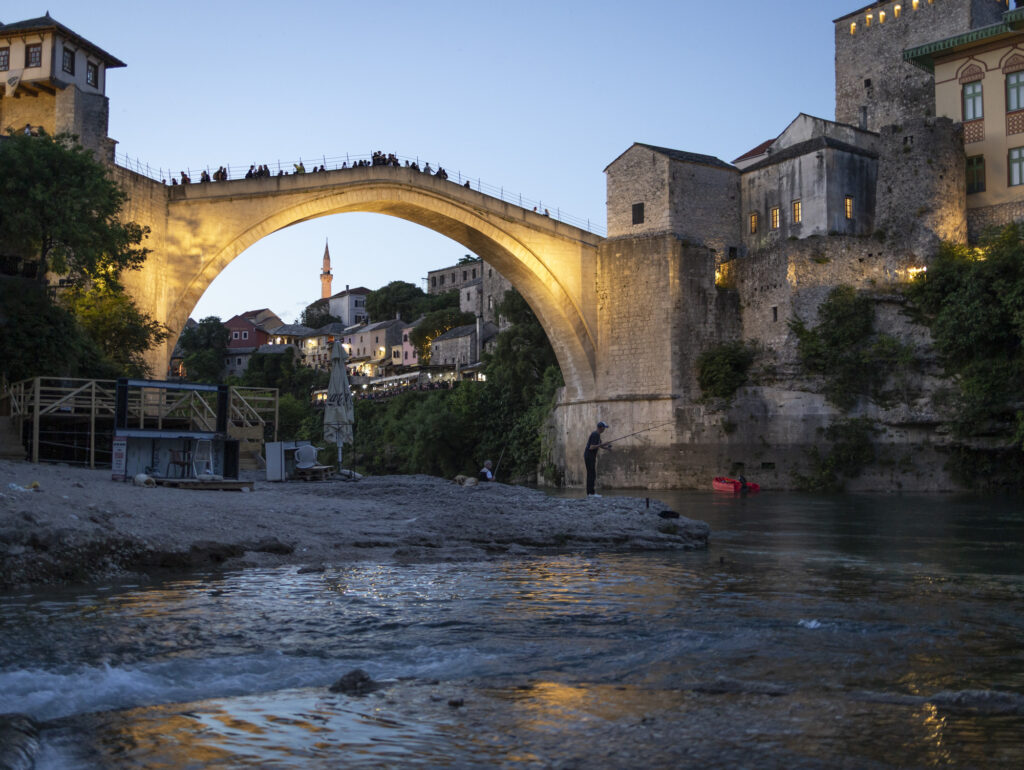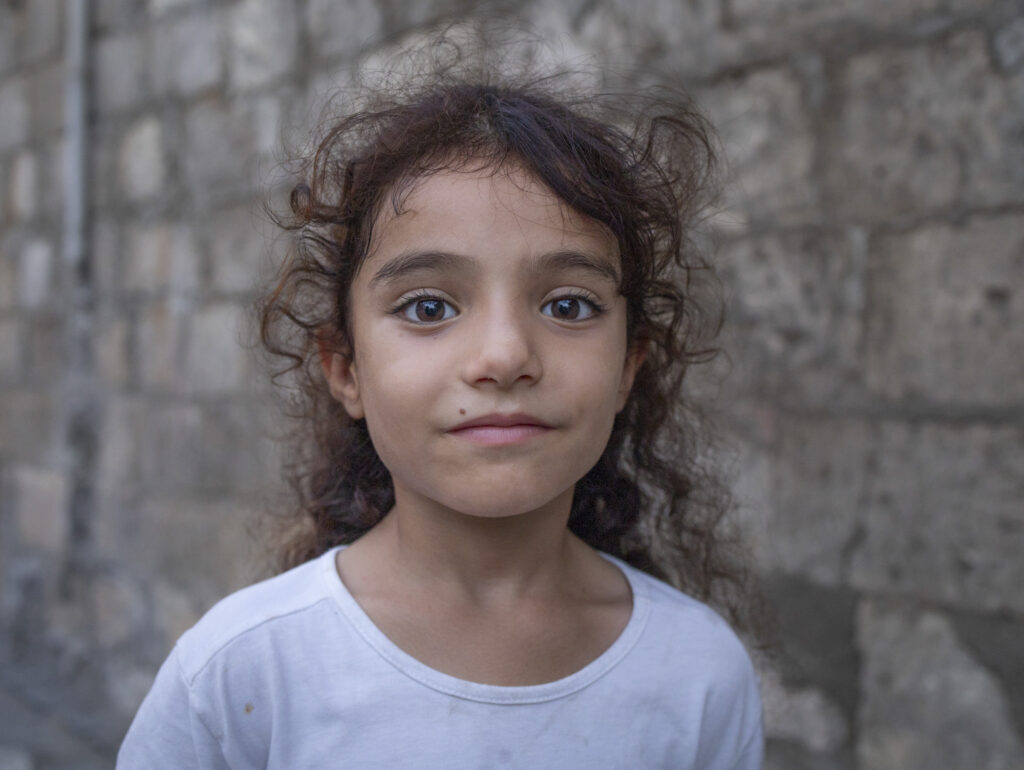Invisible Stories are short narratives that, starting from real photographs, invent the private lives of the characters, setting them in authentic historical and social contexts.
My name is Aram and this is my city, Sulaymaniyah. The aluminum ladder my cousin and I carry across the avenue isn’t heavy. The real weight is the reason we carry it: because if we don’t, no one will. It’s the weight of a place where the state is a shadow and people make do. Our first stop isn’t for a light bulb, but for my aunt’s shop, where I’ll be selling hijabs for the next eight hours. We cross the bazaar and pass the alley of the goldsmiths. I see two men walking away with slumped shoulders. I know what they’ve done. They sold the family gold, the insurance against hunger during the Saddam era, to buy their son a ticket to Europe. I don’t have that ticket. I’m the one who stay. My brother sells fruit a little further on. He still wears his shal u shepik with pride, and his products are “from Halabja.” That word is a thorn in the heart of every Kurd, but for him it’s a silent cry of resistance. I, on the other hand, am surrounded by veils. In the shop, I’m submerged in a sea of colorful silk and chiffon. I’m the guardian of an archive of modesty, while my mind longs to fly away. I look up, at the light streaming from the ceiling, and think of my friends. Last night we were up in Jabal Dawlamayan, where we go almost every night. Below us, the lights of the city that raised us. Rezan will leave for Canada, Karim for Germany. “The stars up there will be brighter,” Rezan said. But I will stay here, with the same stars, watching the city empty of my peers. None of us is happy to leave, but neither is it to stay. They are fleeing corruption and the lack of a future; I stay out of a sense of duty I can’t explain. The Bulbul within me is caged. He sings of a melancholy freedom, the kind that time sometimes deceives us into believing we can touch, only to close the curtains again and darken the path once more. So it happens that, when fatigue sets in, I go to Amna Suraka. I stop in front of the wall riddled with machine gun bullets. That silence speaks louder than any speech. It tells us why we are what we are, why we distrust Baghdad, why my grandfather is no longer with us. It is the weight of history, a millstone that every Kurd of my generation carries within him.
At the end of the day, when I close the shop, the bazaar is deserted. I am the last golden light on an avenue that sinks into the blue. I adjust the veils, brush away the day’s dust. I am Aram, the boy with the ladder, the hijab seller, the friend who stayed behind. I am not a hero, I am just someone trying to keep a light burning, any light, waiting for something here to change. This is my future: the weight of the ladder and the patience of silk. And I wait. I wait for the rose of Kurdistan to respond to my song of love.
Notes
- Sulaymaniyah: It is historically the cultural and intellectual capital of Iraqi Kurdistan and one of the most important political centers of the country.
- Halabja: On March 16–17, 1988, during the final months of the Iran-Iraq War, Saddam Hussein’s army bombed the Kurdish town of Halabja with a mixture of poisonous gases (including nerve gas, mustard gas, and cyanide). Approximately 5,000 people, mostly civilians, women, and children, died within minutes. Thousands of others later died from disease, cancer, and birth defects.
- Bulbul: In the Kurdish poetic tradition, the bulbul, which in Kurdish and Arabic means nightingale, is the quintessential lover, who sings incessantly of love and longing for his beloved, often represented by the rose (gul). Over the course of the 20th century, this poetic metaphor was politicized. The bulbul became the Kurdish poet, or the Kurdish people themselves, singing of their love for their homeland (the rose), which is beautiful but unattainable and full of thorns (oppression, borders, wars).
- Amna Suraka: During Saddam Hussein’s regime, particularly in the 1980s and 1990s, Amna Suraka was more than just a prison. It was the headquarters of the Iraqi secret service (Mukhabarat) in Sulaymaniyah. A torture and interrogation center: here, thousands of Kurds, including intellectuals, political activists, students, but also ordinary people suspected of opposition, were tortured, interrogated, and killed using atrocious methods.
